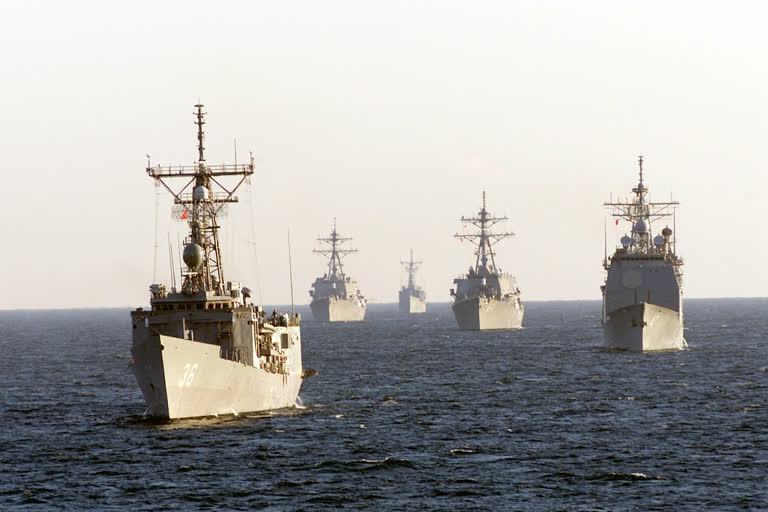New Delhi: Amid intense Chinese propaganda and 'wolf warriors' aggressive approach to cover up its culpability in spreading coronavirus pandemic, the world powers are joining hands to counter China which is increasingly trying to divert attention by implementing its expansionist design from land to maritime domain.
The Galwan incident is just one such example of its policy of intimidation and aggressive move in maritime has already come as a warning signal for the neighbours. The fact cannot be ignored that China's aggressive nationalism and military expansionism are a reality, engendered by policies fashioned by the hardline Communist Party of China (CPC) leaders.
"These policies have resulted in a perception that Beijing respects no laws except those created by itself; it respects no one's property rights if it can find a way to steal it; it respects no boundary or border if it sees a way to acquire territory or resources for itself through intimidation and bullying," said a top government officer.
This attitude is illustrated in the maritime sphere by its self-proclaimed expansive 'nine-dash line' to claim the South China Sea (SCS). How China ignored an international tribunal verdict that rejected its claims to exclusive jurisdiction in the South China Sea displays an arrogance that will win few friends.
"One can only feel sympathy for the Chinese people who only want peace and stability, but have been held to ransom by expansionist policies of the Party," the officer said.
Read |Why's China resorting to aggression
These actions by the Communist Party of China have prompted leading maritime powers, including France, UK, Australia, US, South Korea and Japan to enhance cooperation towards ensuring freedom of navigation and inclusive rules-based order in the Indo-Pacific.
More countries are likely to join these efforts to help sustain multilateral cooperation at the regional level required for, in the words of Indian Prime Minister Narendra Modi, a common rules-based order for the region that must equally apply to all individuals, as well as to the global commons.
"The irredentist behaviour of the Communist Party of China has been a key consideration in India's recent maritime engagements," said a top Indian intelligence officer.
The Sino-Indian defence relationship has now transitioned from a largely continental-based interaction confined to the disputed land border, to an increasingly maritime-based one. China's recent actions along India's Line of Actual Control is meant to remind India that it has a confrontational neighbour on its northern borders.
